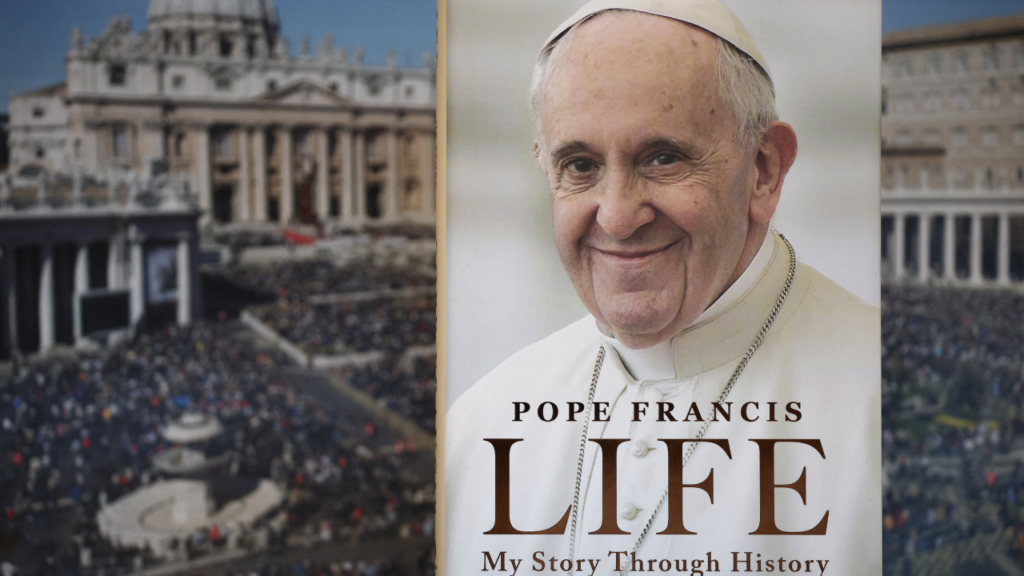Just over 3 years ago, I wrote a chunk for the Herald titled “The Battle of the Papal Biographers” (March 2021). In it, I referred to that considering 2013, as a minimum 8 books have been written approximately Pope Francis in English, with extra at the way. Averaging approximately one in step with year, that’s a quite wonderful pace.
Many authors were complimentary approximately Pope Francis and his priorities—Christopher Lamb, Austen Ivereigh, Paul Vallely, Jimmy Burns, and John Cornwell amongst them. Others have taken a extra essential view. Henry Sire’s The Dictator Pope (2017) is a large outlier—anomalous, certainly, however nevertheless worth of attention along the rest.
The cogs of the ee-e book system have endured to turn. In 2024, the ultra-modern addition is with the aid of using the Pope himself, in collaboration with Italian journalist Fabio Marchese Ragona, a Vaticanista who has without a doubt been granted sizable get entry to to Pope Francis’s thoughts. Ragona explains that Life: My Story Through History is “born with the intention of narrating records thru one person’s story: the maximum extensive activities of the twentieth century and the primary many years of the twenty first withinside the voice of a unique witness, Pope Francis, who has very willingly agreed to appearance returned on his personal existence thru the activities which have left a mark on all humanity.” It is an ambitious—and absolute confidence daunting—undertaking.
People have usually been interested by the lives of the popes—from the early Liber Pontificalis (believed to comprise the biographies of St Peter and his successors as much as the fifteenth century) to weighty tomes like Giacomo Martina SJ’s Pius IX or St John XXIII’s Journal of a Soul. Numerous books via way of means of George Weigel and others have explored the existence of St John Paul II, whilst Peter Seewald leads the sector on Benedict XVI together along with his magisterial two-quantity biography and different works. Pius XII, meanwhile, stays on the centre of a literary tug-of-strugglefare among critics and defenders, specifically concerning his actions—or inactions, relying on one’s perspective—all through the Second World War.
The listing is going on, however Ragona’s contribution sticks out as markedly one of a kind from some thing that has come before. He identifies key historic moments and invitations Pope Francis to mirror on them, imparting readers a compelling glimpse into the pontiff’s internal international over the decades. As Ragona explains: “The pontiff’s personal voice, in his memories, alternates in every bankruptcy with that of a narrator, who reconstructs decided on moments withinside the normal lifestyles of the destiny Pope Francis, including some information suggestive of the duration to set the historic scene and positioned the latter’s phrases into context.” This eclectic technique, whilst engaging, introduces a hint of romanticism that readers might also additionally want to technique with discernment.

It doesn’t undermine the book’s impact, however it does take a few being used to. It’s definitely treasured to research greater approximately Pope Francis’s childhood, as this level of any biography is regularly particularly revealing. We’re delivered to his parents, Mario and Regina—info that straight away carry him toward the reader on a human level. In one vignette—likely greater creative than strictly factual, because it comes from the narrator noted earlier—Mama Bergoglio flies right into a rage over the wickedness of Adolf Hitler. This units the level for the Pope, eighty years later, to mirror that he has “by no means come to terms” with the Nazi agenda, which “has usually precipitated me ache inside.”
This, of course, comes as no surprise; it might had been a stunning revelation had Pope Francis stated some thing different. And so the ee-e book keeps in a comparable rhythm: alternating among narration and reflection, transferring from the Second World War and the Holocaust to Hiroshima and the Cold War; thru the moon landings, Argentina’s political history, the autumn of the Berlin Wall, and the founding of the European Union. A bankruptcy titled “The Hand of God” is, indeed, approximately Diego Maradona’s notorious aim in opposition to England withinside the 1986 World Cup. Years later, while Maradona visited the Vatican, the football-loving pontiff remembers he couldn’t face up to a piece of mischief: “I requested him, jokingly, ‘So, that’s the responsible hand?’”
This is one in all many endearing mises en scène, however Pope Francis doesn’t pass over the threat to give up on a extreme note: “Sports can provide younger human beings in tough instances a protection valve that enables them triumph over anxiety via way of means of sending them outdoor for an amazing kickabout.” The Maradona anecdote quick evolves right into a broader mirrored image at the demanding situations going through current sport: “It is actual that these days there are greater industrial elements to aggressive and expert sports, including sponsors, however this isn’t always a horrific component if carried out carefully and ethically. What is critical is that the perverse common sense of money, which has not anything to do with the spirit of sports, have to now no longer take precedence.”
From here, Pope Francis shifts to the terrorist assaults of September 11, 2001—definitely that generation’s equal of the Kennedy assassination—earlier than reflecting at the monetary disaster that followed. He then turns to the resignation of Benedict XVI and his very own election to the See of Peter. At this point, a moderate alternate in tone emerges, and the ultimate chapters could be the maximum compelling of all. “Pope Benedict took the possibility to confirm his promise of unconditional reverence for and obedience to the brand new pope… His function as pope emeritus has been exploited for ideological and political ends with the aid of using unscrupulous people… who can also additionally have prioritised their very own hobbies and protected their turf even as underestimating the danger of a dramatic cut up in the Church.”
Later, Pope Francis criticises the ones who “create awful feeling in the Church and disorientation a number of the trustworthy,” and returns to certainly considered one among his everyday bêtes noires: clericalism, which he believes creates distance among monks and the humans. “These attitudes have pushed the trustworthy away. It is consequently crucial to hold and sell the religion through putting ourselves near the humans, leaving our embroidery, frills and lace cuffs withinside the closet, and concentrating as an alternative at the Christian message of compassion and closeness.” I’ve by no means pretty understood how closeness to the humans and dignified liturgical vesture are at the same time exclusive—however then, handiest one people is God’s vicegerent on earth, and it absolutely isn’t me.
Alongside this, however, are some of critical clarifications. The concept that nuns or laypeople may vote withinside the subsequent conclave is disregarded as “fantasy.” On the query of same-intercourse marriage, the Pope is firm: “We do now no longer have the strength to alternate the sacraments created via way of means of the Lord. Marriage is one of the seven sacraments and gives handiest for the union of a person and a woman. Leave nicely alone.” He additionally references Amoris Laetitia, pointing out that “there are clearly no grounds for thinking about gay unions to be in any manner comparable or remotely analogous to God’s plan for marriage and family.” Finally, Pope Francis displays on his position itself: “The pope’s ministry is advert vitam, for life, and I consequently see no justification for giving it up.”
This is a ee-e book so one can pleasure many and frustrate others. Some passages are surely beautiful, whilst others are strikingly candid—mainly a renewed apology to the sufferers of clerical abuse. At the equal time, anybody searching out clean solutions approximately the so-called “new Magisterium” or the rekindling of the liturgy wars will come away disappointed. Meanwhile, simplest a person who has spent the beyond few years residing below a rock should completely receive Pope Francis’s declaration that “thank you be to God, I revel in exact health.” His very last line, however, speaks volumes: “I ask this of you: please don’t neglect about to hope for me! For, now no longer against!” It’s a second of overall lucidity and self-cognizance as this papacy starts offevolved to go into its remaining phase.





